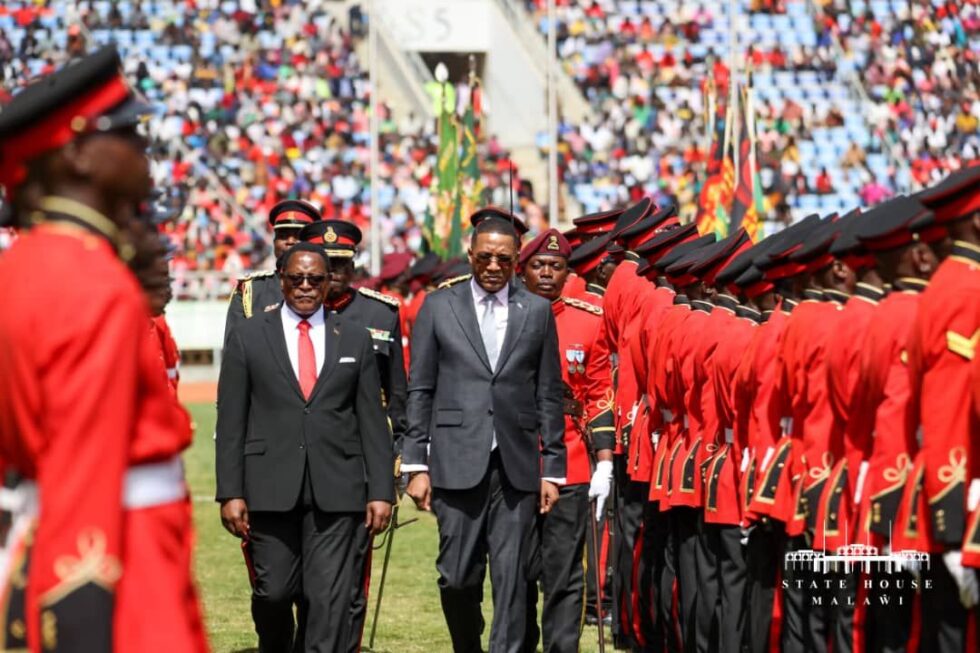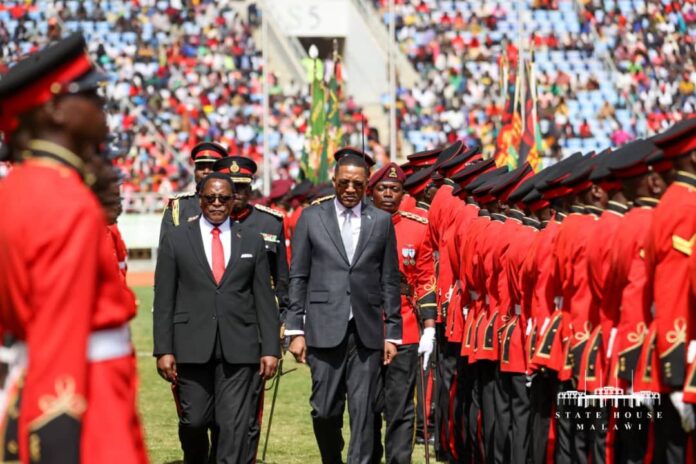By Burnett Munthali
Malawi marked its 61st Independence Day on 6th July 2025 with nationwide celebrations that reflected on the country’s journey since 1964.
The commemorations featured speeches from top leaders, military parades, traditional dances, and patriotic reflections in cities and towns across the nation.
President Lazarus Chakwera used the occasion to call for unity and rededication to national development, urging Malawians to embrace their shared destiny.

In line with these themes of responsibility and growth, the Catholic Commission for Justice and Peace (CCJP), in partnership with Catholic Relief Services (CRS), launched a landmark research initiative in Mangochi.
This two-year study aims to curb child labour and trafficking, especially in the fisheries sector, and targets a reduction in trafficking rates from 43% to 15%.
The project is backed by the U.S. Trafficking in Persons office and is expected to inform future interventions across southern Malawi.
President Chakwera also hosted the “Raise the Flag Summit” at Kamuzu Palace, where he emphasized the importance of patriotism, hard work, and citizen engagement in shaping the country’s future.
He challenged Malawians to stop blaming the past and instead build the Malawi they want through collective responsibility and innovation.
This spirit of innovation was echoed at the 2025 National Youth Summit, where Minister of Mining Dr. Ken Zikhale Ng’oma unveiled a dynamic new development model.
Dubbed the ICE Model—Innovation, Creativity, and Entrepreneurship—the approach is designed to help young people tap into opportunities in the mining sector and contribute to economic transformation.
Meanwhile, in the education sector, Malawi took a step toward global academic exchange as Minister of Higher Education Dr. Jessie Kabwila met with the Colombian Ambassador to explore bilateral collaboration.
Talks focused on potential student and faculty exchange programs, curriculum development, and strengthening research capacity between institutions in the two countries.
On the sports front, Blantyre played host to the inaugural Quad Nations T20 Cricket Cup, featuring national teams from Malawi, Germany, Tanzania, and Bahrain.
The tournament saw some standout performances, including Arun Yadav’s 318 runs and Ally Kimote’s 13 wickets, earning praise from the National Council of Sports.
Cricket fans across Malawi welcomed the competition as a landmark step in raising the sport’s local profile and attracting international engagement.
Capping off the week was a major environmental and cultural milestone, as UNESCO officially inscribed Mount Mulanje as a World Heritage Site on 11th July 2025.
This recognition placed Malawi on the global heritage map and highlighted the mountain’s ecological, historical, and spiritual significance to the nation.
In summary, the week was a powerful demonstration of Malawi’s strides in national identity, youth empowerment, education diplomacy, sporting excellence, and environmental conservation.
From Mangochi to Mulanje, and from Kamuzu Palace to the cricket oval, the stories of progress reflected a country in motion—ready to define its future with confidence and unity.



